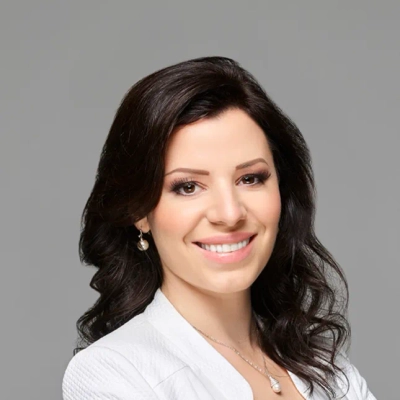9 Budgeting Tips for Beginners to Gain Financial Confidence
Embarking on a journey towards financial confidence can be daunting, but with the right guidance, it becomes an achievable goal. This article presents expert-backed budgeting tips designed to empower beginners in managing their finances effectively. From practical strategies like the 50/30/20 rule to mindset shifts, these insights offer a roadmap to financial stability and growth.
- Start with the 50/30/20 Rule
- Set a Specific Financial Goal
- Track Every Expense for Insight
- Automate Savings and Investments
- Balance Essentials Wants and Savings
- Allocate Income with 50/30/20 Method
- Shift Your Money Mindset
- Keep Budgeting Simple and Realistic
- Take Charge with Zero-Based Budgeting
Start with the 50/30/20 Rule
My top recommendation for someone just starting to budget is to begin with the 50/30/20 rule—a simple, effective method that builds a strong foundation for financial control. This approach allocates:
50% of your income to needs (housing, utilities, groceries)
30% to wants (dining out, entertainment, shopping)
20% to savings and debt repayment
This method worked well for me and many of my clients because it's easy to implement and flexible. It helps you prioritize essential expenses while still allowing room for enjoyment and financial progress.
Once you're comfortable tracking expenses and managing categories, you can transition to more detailed methods like zero-based budgeting or envelope budgeting if needed. The key is consistency—start with a manageable system and adjust as your goals and income evolve.

Set a Specific Financial Goal
When you start budgeting, set a specific goal that matters more to you than whatever you're used to spending your extra money on. That's what I did. When I was in my early twenties, I felt stuck in a career I wasn't passionate about. So, I did something drastic: I worked two jobs and cut my spending as much as possible to be able to afford a down payment on an investment property. My ultimate goal was to retire early and leave the rat race.
Eventually, my first investment became profitable, and I reinvested my returns into new properties. By the time I was 31, I was making enough from real estate that I decided to retire. Looking back, those few years of working overtime and having a tight budget were well worth it because I have total financial security today.
So, bottom line: Set a clear goal for why you're budgeting in the first place, whether it's because you want to invest in real estate, get out of debt, or something else. Having that goal will help you stick to your budget.

Track Every Expense for Insight
Start simple. When I was just figuring out how to manage money, the method that worked best for me was the 50/30/20 rule—50% needs, 30% wants, 20% savings or debt repayment. It gave me structure without being overwhelming. But more than the method, it was the discipline of tracking every expense for the first few months that really shifted my mindset. I remember sitting with a spreadsheet at the end of the month, shocked at how often I'd grabbed coffee or ordered takeout without realizing the cost was stacking up.
One thing I always tell early-stage founders we work with at Spectup: treat your personal finances like a startup's runway. Know how much you've got, how long it'll last, and what your burn rate is. It's not about being frugal to the point of misery—it's about being intentional. Once I had visibility, I felt more in control, and that alone changed my spending habits. Budgeting shouldn't feel like a punishment. It's a tool to help you make smarter decisions and free up mental space.

Automate Savings and Investments
My top recommendation for someone just starting to budget their money is to automate their savings and investments. Aim to set aside 15-20% of your monthly net income and have it automatically transferred to a high-yield savings account and investment account as soon as you're paid. Investing doesn't have to be complicated—target retirement index funds are a great option for beginners because they automatically adjust over time based on your expected retirement date.
As for budgeting, the 50/30/20 rule has worked well for me: 50% of income goes to needs, 30% to wants, and 20% to savings and investments. Automating that 20% makes it easier to stay consistent and build wealth over time. This approach keeps things simple, reduces stress, and helps ensure you're making steady progress toward your financial goals.

Balance Essentials Wants and Savings
My top recommendation for someone just starting to budget is to track every expense, no matter how small. It's important to know exactly where your money is going before you can plan where you want it to go.
The budgeting method that worked best for me is the 50/30/20 rule. It's simple and easy to follow: 50% of your income goes to necessities like rent and utilities, 30% goes to wants like entertainment or dining out, and 20% goes to savings or debt repayment.
This method works well because it's balanced and flexible. It allows you to focus on the essentials while also setting aside money for the future. Starting with this method helped me get a clearer picture of my finances and make smarter decisions about spending.

Allocate Income with 50/30/20 Method
When I first started budgeting, the 50/30/20 rule was a game-changing trick for me. This method helped me clearly allocate my income. I dedicated 50% to my needs, like rent and groceries, 30% to wants, such as dining out and entertainment, and 20% to savings and debt repayments. It's straightforward and flexible, which makes it perfect for beginners. I appreciated how it allowed me to enjoy life while still focusing on my financial goals.
Initially, when I was tracking my expenses, it felt overwhelming. But once I created a simple spreadsheet, it became manageable. I loved seeing my savings grow, which motivated me to stick with it.
This approach not only helped me control my spending habits but also ensured I was prepared for unexpected expenses. If you're starting, give this method a try. It could transform your relationship with money like it did for me.

Shift Your Money Mindset
The Best Budgeting Method Isn't a Spreadsheet; It's a Mindset
Before looking at spreadsheets or downloading an app, ask yourself: What do I value? Because unless you shift your mindset, no budgeting method will work for long. You'll fall back into old habits.
Budgeting isn't about restriction; it's about recognition - the difference between an expense and an investment, between looking rich and being rich.
Most people don't budget with the right perspective. They buy designer clothes and expensive cars, trying to feel successful. But if you're serious about building wealth, here's how to change your perspective:
Think Like an Investor, Not a Consumer
The wealthiest people don't waste money on frivolous items. They drive modest cars, wear simple clothes, and own high-performing assets. And they do this because they understand one thing most people ignore:
Spending money is spending your time.
Every purchase = hours of your life.
Before buying a $5,000 handbag or a $1,000 pair of shoes, calculate how long it took you to earn that money and what that could have done for you if invested instead.
I used to buy things to feel successful. Now, I get more satisfaction from watching my money grow. That's the budgeting strategy that sticks, not the envelope system or the latest budgeting app. If you change your perspective first, you don't need tracking tactics.
Budgeting Framework:
1. Rewire the mindset.
Start by reframing money as energy. What gives you energy? What drains it? Invest in the first. Eliminate the second.
2. Redefine your identity.
You don't need a Gucci handbag to feel wealthy. Learn to feel rich because your money works harder than you do.
3. Track big wins, not small savings.
Skip the obsession with $3 coffees. Focus on the $300 decisions - housing, transport, and habits. That's where the leverage lives.
4. Automate intelligent behavior.
Once the mindset is in place, layer in tools. Automate investments. Use apps if they help, but don't lean on them. Systems serve the mindset, not the other way around.
The best budgeting system isn't a category on a spreadsheet. It's knowing who you want to become and spending in alignment with that.
You want the nicest house on the street, not the flashiest car in the driveway. True wealth starts with how you think.

Keep Budgeting Simple and Realistic
My top recommendation for someone just starting to budget is to keep it simple and realistic. When I first began budgeting, I used the 50/30/20 rule—allocating 50% of my income to needs, 30% to wants, and 20% to savings and debt repayment. This method worked best for me because it's straightforward and flexible enough to fit different income levels and lifestyles. It helped me see where my money was going without feeling overwhelmed by complicated spreadsheets. What really made the difference was tracking my spending consistently and adjusting my categories as my priorities changed. By starting with a simple framework and building good habits, I was able to gain control of my finances and save steadily without feeling restricted. My advice is to start small, stay consistent, and be kind to yourself as you learn.

Take Charge with Zero-Based Budgeting
A zero-based budget is a great way to get started. It allows you to take charge of every dollar you make. Feeling controlled by your money is stressful, but taking charge helps eliminate the stress.
If you feel overwhelmed by the idea, just get started. You might not do it perfectly right away, but you don't have to. Once you get started, you'll know what questions to ask and how to make your budget more accurate. The key is starting.


